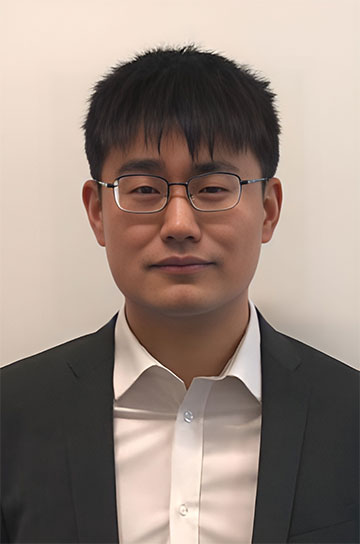
Fei Ding
In this installment of senior member insights, OPN talks with Fei Ding, a tenure-track assistant professor at the Centre for Nano Optics at the University of Southern Denmark (SDU Nano Optics). Ding received his Ph.D. in optical engineering from Zhejiang University, China, in 2015 and was a postdoctoral fellow at SDU Nano Optics from 2015 to 2019.
His current research interests are in the areas of nanophotonics, gradient metasurfaces, plasmonics and quantum nanophotonics, with a particular focus on innovative and extreme aspects of light-matter interaction at the nanoscale. Ding received the Wang Daheng Optical Prize for Graduate Students from the Chinese Optical Society in 2014, the Young Scientist Award from the Progress in Electromagnetics Research Symposium in 2018 and 2019 and the Villum Young Investigator from the Villum Fonden in 2021. He is an active reviewer of more than 20 international journals and received the Publons Peer Review Award in 2018 and 2019. He has served as an associate editor of IEEE Photonics Journal since April 2021.
What first interested you in pursuing science?
The speed of light. When I learned in primary school that the speed of light is 300000 km/s, I kept wondering for days about it and thought I should pursue science.
What aspect of your current work do you find the most interesting or exciting?
Currently, I have been working on a novel quantum metasurface platform for generating and manipulating single photons at room temperature by integrating quantum emitters based on nano-diamonds containing color centers with optical metasurfaces, which is promising for future optical quantum technologies, such as photonic quantum computers and quantum communication systems.
What tips for successful networking do you have for early-career professionals?
Early-career professionals should be active in societies, leading to professional accomplishments, service within the research field and active involvement. It is important to publish as many solid papers as possible, which are considered to be unique personal profiles. Getting involved in national and international activities and conferences is equally important and will give you opportunities to meet other professionals and build your own network. Last but not least, becoming an active reviewer for related conferences and journals is quite useful.
What’s the best career decision you’ve ever made, and why?
The best decision I made was to take a postdoc position with Prof. Sergey I. Bozhevolnyi at the University of Southern Denmark, where I learned a lot from my mentor Prof. Bozhevolnyi and other senior colleagues. This eventually led to my current position at the University of Southern Denmark.
What skills do you think are most important for someone interested in a career like yours?
A solid foundation in physical optics and nanofabrication is a must in our research area. Also, it is critical to learn how to quickly read papers and synthesize the most useful information since there are so many exciting results being published all the time.
Besides the technical skills, the ability to communicate with others is equally critical. Learning how to make an engaging research talk is significantly important, both for getting people to remember you and your work and for attracting students to your research group.
Describe a major turning point in your career. Was there a specific action/accomplishment that got you there?
In 2018, I received my first grant from Villum Fonden, which allowed me to try a new research topic on quantum metasurfaces and put me on an exciting journey to be a research leader. Through this Villum project, I have extended my research to quantum optics, gained much experience in quantum nanophotonics and received the prestigious Villum Young Investigator designation in 2021, which has supported me to lead a compact but efficient group conducting cutting-edge research in quantum metasurfaces.
What is one piece of advice that you wish you were given as a student/early in your career?
Try to take good notes when reading papers or doing experiments.
What have you learned by being a mentor to others, and what have you learned from mentors who helped shepherd your career?
While mentoring young researchers and students, I have realized that people have different learning and working styles. Therefore, I must figure out such differences between people and adjust my supervision accordingly. For the less motivated students, I need to be more patient and work together with them.
I have learned a lot from my previous mentors, including how to write a good paper, how to deal with comments from different reviewers, how to write a comprehensive grant proposal, etc. Among all the stuff, I think the most important lesson I learned is to think independently.
At this point in your career, what are you most looking forward to next?
At this point, I am most looking forward to receiving more funds to expand my group and doing more exciting research projects on metasurfaces. In the long term, I want to become a world-famous experimentalist in optics and photonics, just like my mentors.
Outside of work, what is your favorite thing to do in your free time, and why?
I spend most of my spare time with my wife, Yun. We both enjoy watching movies and traveling throughout the world. I also like playing football with my friends.
